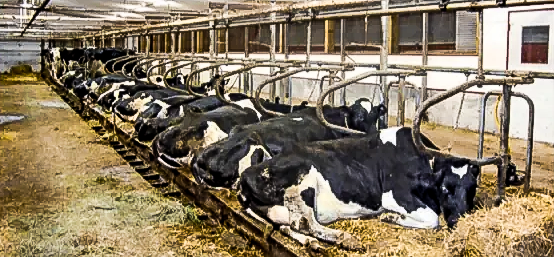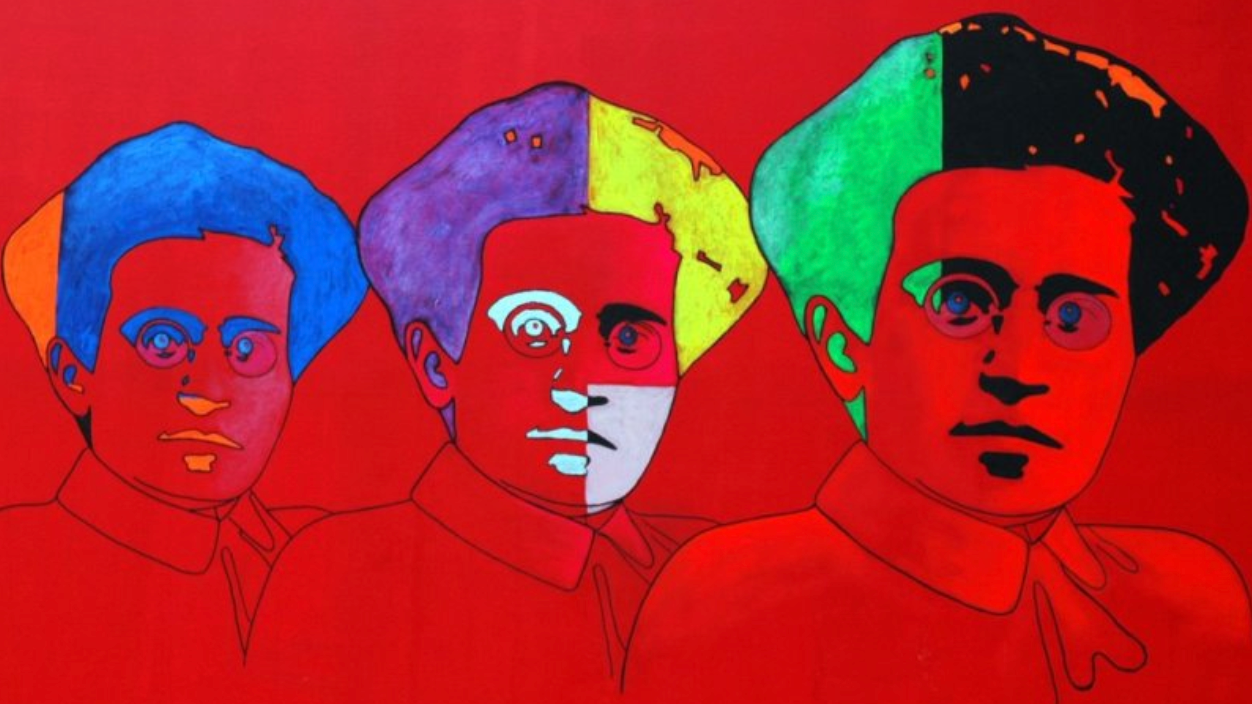Socialism
Calendar of Events
|
S
Sun
|
M
Mon
|
T
Tue
|
W
Wed
|
T
Thu
|
F
Fri
|
S
Sat
|
|---|---|---|---|---|---|---|
|
1 event,
This group is reading and discussing original texts by Marx and Engels about their theory of class struggles as the motive force of human social evolution and the modern working class as the political antagonist of the capitalist system. The primary text is the anthology 'Karl Marx: The Political Writings,' recently published by Verso. In this part 2, we will be reading the "Surveys From Exile" section, which begins with "The Class Struggles in France 1848-1850" and takes us through Marx's articles on the Civil War in the United States.
Free – $90.00
|
0 events,
|
0 events,
|
1 event,
A discussion and reading group on the central role of human and nonhuman animal labor in the capitalist economy, both historically and today. What are the anthropocentric premises underlying mainstream understandings of labor in Marxist theory? How might we expand our thinking to include the multiple forms of nonhuman labor necessary for capitalism? What kinds of labor do nonhuman animals provide in production, and on what cultural, ideological and economic bases is work divided among people, nonhuman animals and machines?
Free – $90
|
0 events,
|
0 events,
|
0 events,
|
|
1 event,
This group is reading and discussing original texts by Marx and Engels about their theory of class struggles as the motive force of human social evolution and the modern working class as the political antagonist of the capitalist system. The primary text is the anthology 'Karl Marx: The Political Writings,' recently published by Verso. In this part 2, we will be reading the "Surveys From Exile" section, which begins with "The Class Struggles in France 1848-1850" and takes us through Marx's articles on the Civil War in the United States.
Free – $90.00
|
0 events,
|
0 events,
|
1 event,
A discussion and reading group on the central role of human and nonhuman animal labor in the capitalist economy, both historically and today. What are the anthropocentric premises underlying mainstream understandings of labor in Marxist theory? How might we expand our thinking to include the multiple forms of nonhuman labor necessary for capitalism? What kinds of labor do nonhuman animals provide in production, and on what cultural, ideological and economic bases is work divided among people, nonhuman animals and machines?
Free – $90
|
0 events,
|
0 events,
|
0 events,
|
|
0 events,
|
0 events,
|
0 events,
|
1 event,
A discussion and reading group on the central role of human and nonhuman animal labor in the capitalist economy, both historically and today. What are the anthropocentric premises underlying mainstream understandings of labor in Marxist theory? How might we expand our thinking to include the multiple forms of nonhuman labor necessary for capitalism? What kinds of labor do nonhuman animals provide in production, and on what cultural, ideological and economic bases is work divided among people, nonhuman animals and machines?
Free – $90
|
0 events,
|
0 events,
|
0 events,
|
|
1 event,
This group is reading and discussing original texts by Marx and Engels about their theory of class struggles as the motive force of human social evolution and the modern working class as the political antagonist of the capitalist system. The primary text is the anthology 'Karl Marx: The Political Writings,' recently published by Verso. In this part 2, we will be reading the "Surveys From Exile" section, which begins with "The Class Struggles in France 1848-1850" and takes us through Marx's articles on the Civil War in the United States.
Free – $90.00
|
0 events,
|
0 events,
|
1 event,
A discussion and reading group on the central role of human and nonhuman animal labor in the capitalist economy, both historically and today. What are the anthropocentric premises underlying mainstream understandings of labor in Marxist theory? How might we expand our thinking to include the multiple forms of nonhuman labor necessary for capitalism? What kinds of labor do nonhuman animals provide in production, and on what cultural, ideological and economic bases is work divided among people, nonhuman animals and machines?
Free – $90
|
0 events,
|
0 events,
|
1 event,
We continue to study selected passages from Antonio Gramsci’s Prison Notebooks. We delve into key themes and concepts related to civil society and state: politics and the arts, racism, class and gender, religion, linguistics, and other methods of analysis, critical theory, mass media, and cinema, hegemony, and subaltern studies, as well as the role of intellectuals and activists in discovering new methods and languages to be transformative.
Free – $80
|
|
2 events,
We continue to study selected passages from Antonio Gramsci’s Prison Notebooks. We delve into key themes and concepts related to civil society and state: politics and the arts, racism, class and gender, religion, linguistics, and other methods of analysis, critical theory, mass media, and cinema, hegemony, and subaltern studies, as well as the role of intellectuals and activists in discovering new methods and languages to be transformative.
Free – $80
Discussion of texts by Marx and Engels on India, China, and European colonialism; essays on the Civil War in the United States; documents related to the International Workingmen's Association; Marx's classic The Civil War in France and related essays; polemics against Bakunin; and Marx's correspondence about the rise of the workers' political party in Germany, including his Critique of the Gotha Program.
Free – $90
|
0 events,
|
0 events,
|
1 event,
A discussion and reading group on the central role of human and nonhuman animal labor in the capitalist economy, both historically and today. What are the anthropocentric premises underlying mainstream understandings of labor in Marxist theory? How might we expand our thinking to include the multiple forms of nonhuman labor necessary for capitalism? What kinds of labor do nonhuman animals provide in production, and on what cultural, ideological and economic bases is work divided among people, nonhuman animals and machines?
Free – $90
|
0 events,
|
0 events,
|
0 events,
|
|
2 events,
We continue to study selected passages from Antonio Gramsci’s Prison Notebooks. We delve into key themes and concepts related to civil society and state: politics and the arts, racism, class and gender, religion, linguistics, and other methods of analysis, critical theory, mass media, and cinema, hegemony, and subaltern studies, as well as the role of intellectuals and activists in discovering new methods and languages to be transformative.
Free – $80
Discussion of texts by Marx and Engels on India, China, and European colonialism; essays on the Civil War in the United States; documents related to the International Workingmen's Association; Marx's classic The Civil War in France and related essays; polemics against Bakunin; and Marx's correspondence about the rise of the workers' political party in Germany, including his Critique of the Gotha Program.
Free – $90
|
0 events,
|
0 events,
|
1 event,
A discussion and reading group on the central role of human and nonhuman animal labor in the capitalist economy, both historically and today. What are the anthropocentric premises underlying mainstream understandings of labor in Marxist theory? How might we expand our thinking to include the multiple forms of nonhuman labor necessary for capitalism? What kinds of labor do nonhuman animals provide in production, and on what cultural, ideological and economic bases is work divided among people, nonhuman animals and machines?
Free – $90
|
0 events,
|
0 events,
|
0 events,
|


